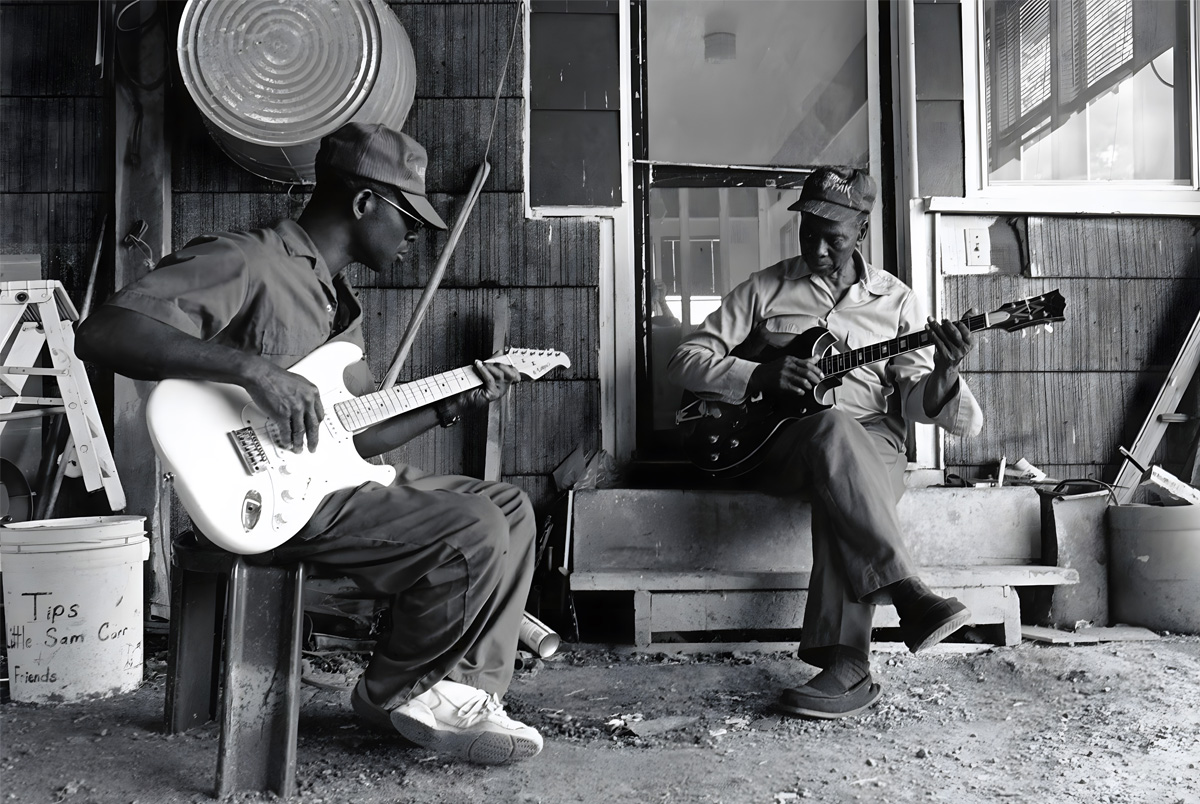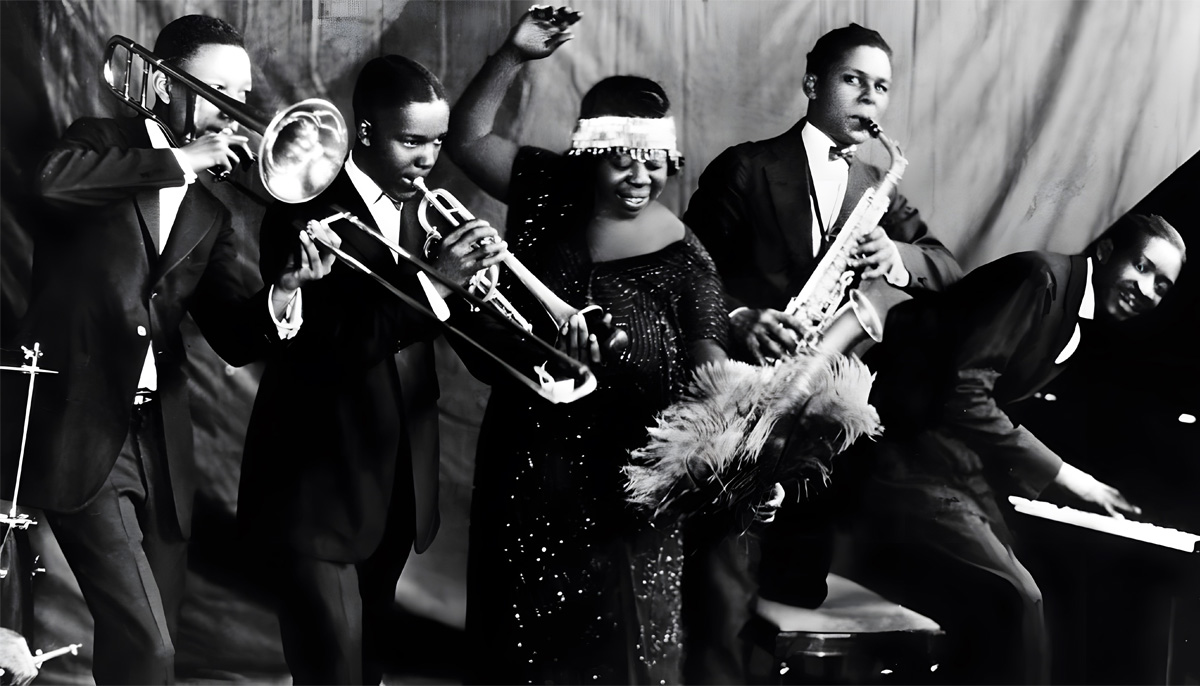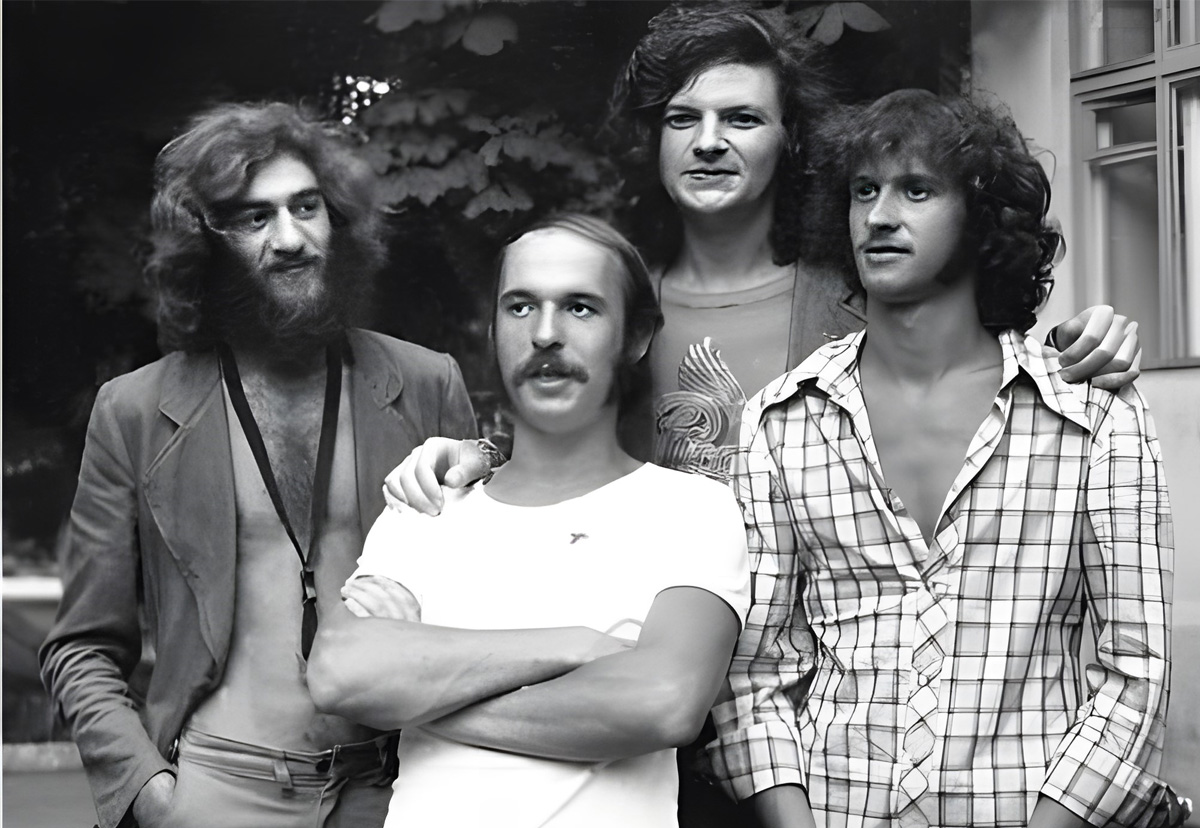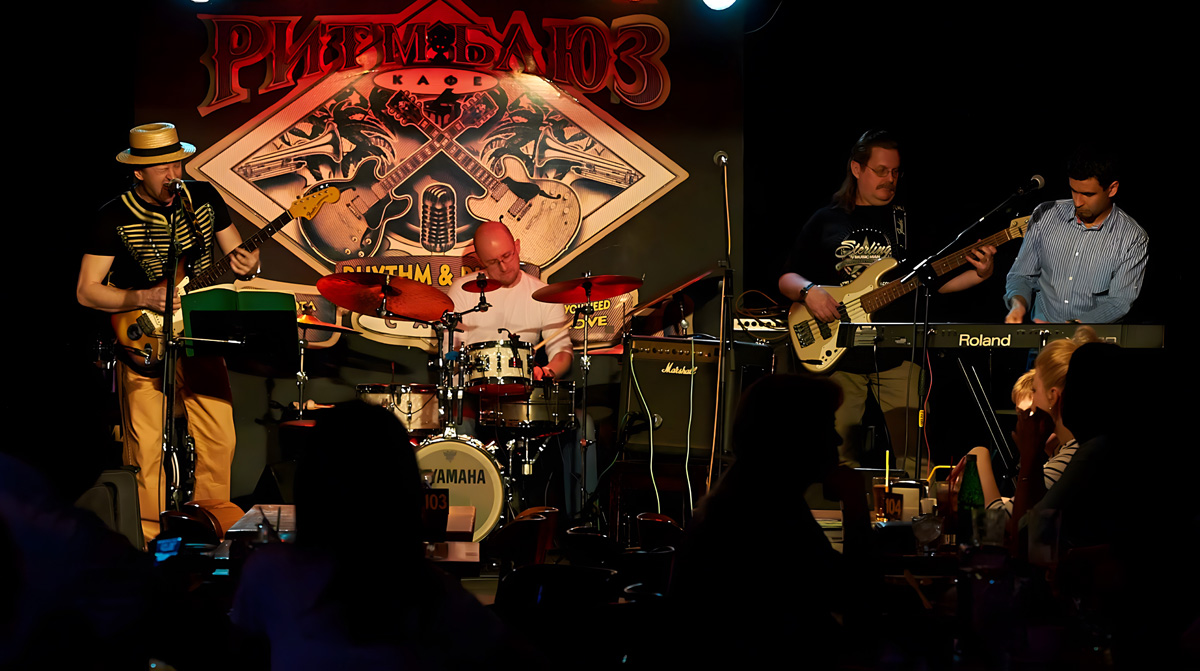History of Soviet blues: emergence, development and representatives
Содержание
In the history of music. hard define a clear framework for the emergence of a genre; usually one follows from the other by experiments performers. It's hard to imagine that modern musical styles came out of the folk music, especially those that were a way of life for the lawmakers. One of them was the legendary blues.
Despite the fact that the peak of American blues came in the 20-30 years of the last century, it reached the Soviet Union much later, like other genres. About how the music of the African American population penetrated the closed USSR, who were the leading representatives and how the blues are presented now will be the subject of this article.
How African-American music came to the USSR

Like all musical genres, the blues arises primarily from the folk music of African Americans working on plantations. The genre was composed of work songs, spirituals, ballads, and various shouts accompanying physical work and rituals. Although there was no designation for this current of music in those days, "namelessness" reflected very vividly the sense blues was primarily a genre of alienated and oppressed a layer of people who communicated in their compositions the sadness and despondency of a poor life.
The lifestyle of bluesmen singles changed with the popularisation of the style in society in the 1920s. It began to take shape ensemblesand now musicians who used to be localised in ghetto neighbourhoods have a chance to step out of the shadows. The blues boom of the '20s influenced the real ideologues of the movement - they became legislators new music for the world.

The performers have left their mark on many fresh genres such as rock 'n' roll, blues-rock, rhythm and blues and others. The penetration into the USSR happened gradually, when in the 60s the young generation of Soviet citizens first heard the blues in a modernised in the compositions of The Rolling Stones, The Yardbirds and, a little later, in the songs of Led Zeppelin. Soviet blues lovers were orientated to the early recordings of these rock bands, which already at that time represented in their first albums covers to the works of blues and jazz legends. You could say that in "clean" the blues came to the Union after a time when it was withdrawn ban on English-language music and for music lovers began to release records by Muddy Waters and discs by bluesman Robert Johnson.
The main representatives of the genre are

In the USSR, which was closed to Western ideas, the following were created own blues bands. Many of them gave rise to the modern blues movement and, despite the repetition They were able to create original, real Soviet blues.
Alexei Belov and "Good Acquisition"
"Lucky Acquisition were one of the first blues bands. "Golden" line-up formed by 1969, when vocalist and guitarist Alexei Belov bassist Vladimir Matetsky joins the band and drummer Mikhail Sokolov; at the same time the band changes its name, under which the whole Union learnt about them. By the middle of the 70s the band managed to find its own style. rhythm and bluesmesmerising unsophisticated audiences with its power and emotion.
At the same time, the team has time to work with the Stas NaminHe has recorded several headliners for Moscow radio, as well as taking part in festivals in Tallinn, Tbilisi, and a few years later co-operates with by Kris Kelmy and his "Rock Atelier". By 1981 the group ceases its activity, but six years later it resumes its work and becomes "Ensemble under Alexey Belov". At the moment the collective exists as duo Belov and his son, and the recordings of the songs most often feature session musicians.
"Wild Honey."
At the end of the 70s in Donetsk, a band was formed that became iconic for the Ukrainian rock community. For several years Mykhailo Koval and Serhiy Fedotov were known to a small number of people and sang mostly in English, but after a couple of moments the young people invited a couple of other musicians to their band and became full-fledged team. Throughout history, the composition of the team has changed several times, but this has not prevented Wild Honey from becoming a iconic Ukrainian rock and blues band.
Mikhail Koval, to this day the author of the lyrics and music, was eventually able to fit Russian verse into a bluesy rhythmic framework, refuting prejudice about it. Besides, sound The band was tight and truly rock 'n' roll, which made the band recreate in its homeland the particularRooted in the tradition of American Southern rock, a musical movement with outstanding features.
"Blues League."
1979 was marked by the creation of another legendary for Soviet music group - "League of Blues". The idea of creation belongs to Nikolai ArutyunovThe band was joined later by Sergei Voronov, Mikhail Savkin and Boris Bulkin. By 1986, the band released their first album completely in English, following all the traditions of the blues.
After some minor line-up shifts a year after the record was recorded, the band became completely professional, and now included five members. After a world tour, the Blues League changed the line-up once more and released their most famous songs, including "Untie My Hands", "July Blues" and others. In the mid-90s the band took part in the Montreux Blues Festival.
The audience fell in love

Soviet blues developed distractedly from the rest of the world, and while the blues obsession in the 1920s led to the popularity and development In the USSR blues came only by the 1960s. For the most part, the bands that soon became recognised in the underground culture of the time, perceived the new direction through the songs of foreign bands, which either made covers of the compositions of cult bluesmen, or reinterpreted them and added features heavy of music. At the same time, the Union gradually began to create first blues ensembles that influenced the genre's spread across the country.
The situation changed by the 1980s, when Soviet citizens had the opportunity to appreciate the sources In many ways, the "real" blues was shown to the USSR by the Soviet Union itself. In many ways, the "real" blues was shown in the USSR by the blues itself B.B. KingThe guitarist was impressed by the virtuosity of Soviet musicians. The guitarist was impressed by the virtuosity of the Soviet musicians, and his appearance on the same stage with domestic performers only strengthened his reputation as a great musician. favourable relationship to the aesthetics of the blues.
By the late '80s and early '90s, the blues had become a classic even in the USSR, as the fall of the country brought more opportunities to experience culture. Music journalists attribute this time to the emergence of the clubs - compact places where the blues feel more at ease.
Modern Russian blues

In the 90s, the blues did not remain a relic of the past, but increasingly began to spread among musicians. As a rule, modern bluesmen more often rely on "pure" American blues. One of the leaders of the blues movement during the perestroika years was the band "CrossroadZ"The band was founded by Sergey Voronov, a member of Lucky Acquisition. The band became one of the best in Moscow, combining sharp rock with soft and lyrical blues rhythms. The success was destined for the band immediately after the release of their first album, and the song "Diamond Rain" topped the charts in France and Russia.
Lebanon Lomidze and Zazo Kakhiani formed a group "Blues Cousins" in 1991. After several years of rejection, the band, already in a changed composition, began to conquer the Russian capital, and Lebanon quickly proved itself one of the best blues guitarists in Russia, as well as being recognised as one of the top guitarists in the USA. The leader of the Blues Cousins became not only a iconic a figure of Russian blues, but also a participant of many foreign festivals.
In 2000, a collective was formed in Lipetsk "Gastarbeiter Blues"The band is a true legacy of the genre. The founders, Roman Zastrozhin and Oleg Fedchenko, decided to gather the band after the dense listening to Muddy Waters' records, and soon played as the opening act for Boris Bulkin's band. After a while, the band got colourful a name that reflects the musicians' involvement in true American blues.



